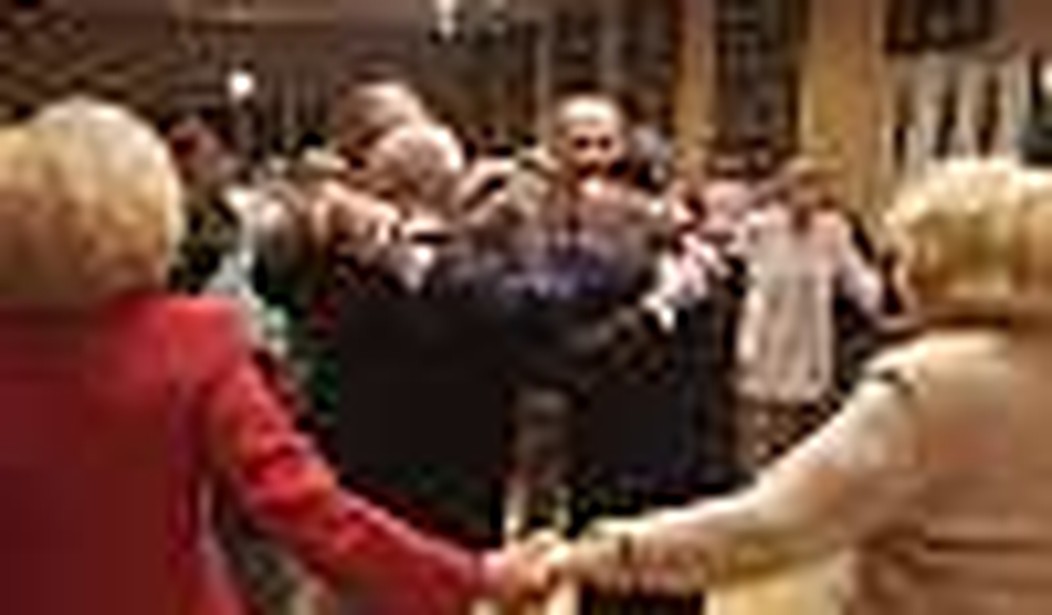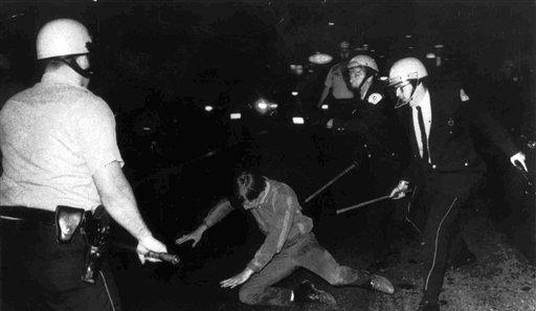The summer guests at the Four Seasons Lodge in New York’s Catskill Mountains play poker, dance into the wee hours of the night and swap stories like you might at any family reunion.
But a shared tragedy is never far from their thoughts. These guests, most of whom are in their 80s, survived the Nazi concentration camps more than 65 years ago.
“This is always behind your head,” says one guest during the new documentary Four Seasons Lodge, getting its world premiere June 17 at the Silverdocs film festival in D.C.
These seniors, mostly of Polish descent, began gathering in New York’s famed retreat more than 25 years ago. Each summer they stay at a bungalow colony where they formed bonds just as authentic as familial ones. These lodge retreats served as their escape from the anti-Semitism they endured in their respective towns and from the isolation they felt as immigrants.
They are Holocaust survivors, but they rarely act the part.
Four Seasons Lodge shares their 2006 summer gathering, which could be their last. The colony is for sale, and part of their summer involves intense negotiations regarding its future.
Some of the guests may not live long enough to see another retreat even if the colony survives.
Take 91-year-old Aron Adelman, who suffers from multiple health complications and is hospitalized at one point during the film.
Yet most of the lodge guests refuse to act their age. And rarely do they wallow in self pity. The past still haunts them, and one guest prefers not to discuss it, but living well remains their preferred revenge.
The guests arrive this fateful year on a rain-soaked afternoon, their aged bodies forced to huddle under makeshift umbrellas. The seniors gather, swap hellos and settle into vacation mode. We’re lulled into a sense of complacency. No one is discussing the past, only what’s on the agenda for the next few days. The opening scenes could be stripped from anyone’s home movies, albeit ones shot with a filmmaker’s gimlet eye for detail.
First time director Andrew Jacobs, who learned of the colony as a reporter for The New York Times, stitches the story together from many throwaway scenes, like the guests checking to see if the electricity has been turned on in their rooms. The film’s first 20 minutes, in fact, are agonizingly slow but never less than beautiful.
Famed documentarian Albert Maysles (Gimme Shelter) served as one of Jacobs’ cinematographers, and he turns the most rudimentary of moments into gorgeous vignettes.
Some images slice right through the documentary’s modest approach. A casual shot of the guests playing cards captures their arms reaching out, each forearm emblazoned with a string of tattooed numbers — the enduring symbol of their Nazi persecution.
For a good part of the movie, the drama remains tied to the context. It’s rarely on-screen in the traditional sense. There’s a grace to the patience Jacobs employs here, even if it may exasperate some audiences.
Only when Jacobs zooms in on the guests themselves does the film find its emotional purchase. These seniors are worth getting to know. They’re lively, comical and rarely do they share a cross word with one another. A few must tend to their loved ones, whose poor health demands constant attention. They face these tasks with determination and love, never cursing their fate or asking why God decided to leave them with these duties.
They understand just how lucky they are to be alive and act accordingly.
“Life can be beautiful even when it’s not so easy,” one guest says when considering the ravages of time.
Four Seasons Lodge packs more wisdom than the best therapy session. The individuals here are staring down death with palpable dignity. After all, their final years are on their terms, something that’s never far from their thoughts.
How these disparate folks reached out to find new families after theirs were wiped out is a fascinating tale even if it feels stretched at its 101 minute running time.
The documentary offers up some recollections of their shared past, but it rarely focuses too long on them. Some stories are particularly poignant, even if they only hint at the horrors they would collectively face. One gentleman, a former soccer standout, recalls how the German newspapers all but ignored him when his heroics helped his team win. The press couldn’t stand reporting that a Jewish player performed so admirably.
Another smiles mischievously when he tells how he stole a postcard out of Hitler’s favorite automobile.
But cinematically speaking, Four Seasons Lodge might have had more impact had it been told in a shorter format.
Four Seasons Lodge remains a poignant tribute to a generation who endured the worst man has to offer, but never let it spoil their faith in each other, or humanity.








Join the conversation as a VIP Member